Rain brings miseries to Rohingyas
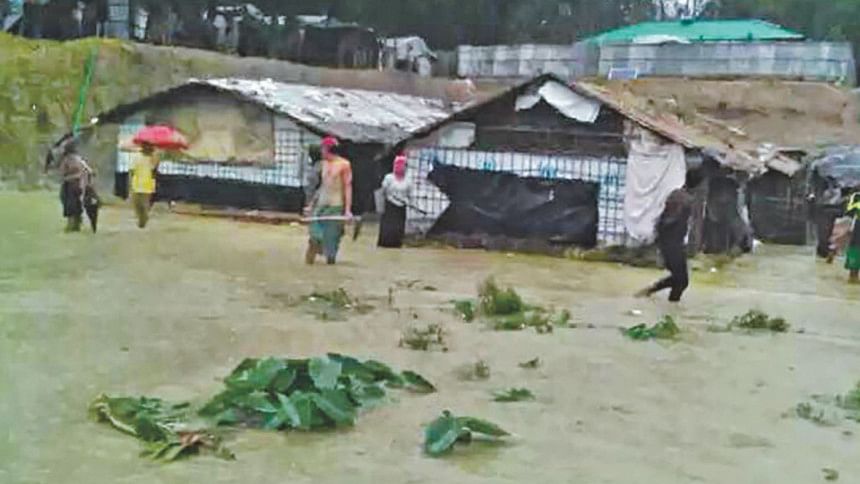
Heavy rain over the last four days has brought untold miseries to thousands of Rohingyas living in refugee camps in Cox's Bazar.
Many of the makeshift shelters in Kutupalong, Balukhali and Thyangkhali camps have already gone under knee-to-waist deep water with the refugees facing shortage of dry food.
“It has been raining heavily since Saturday ... We cannot even cook as all the firewood got wet. Many shelters here are inundated,” said Mohammad Noor, a refugee at Kutupalong camp.
“Most of the latrines are washed away. We now have no other option but to respond to the call of nature out in the open,” he told this newspaper yesterday.
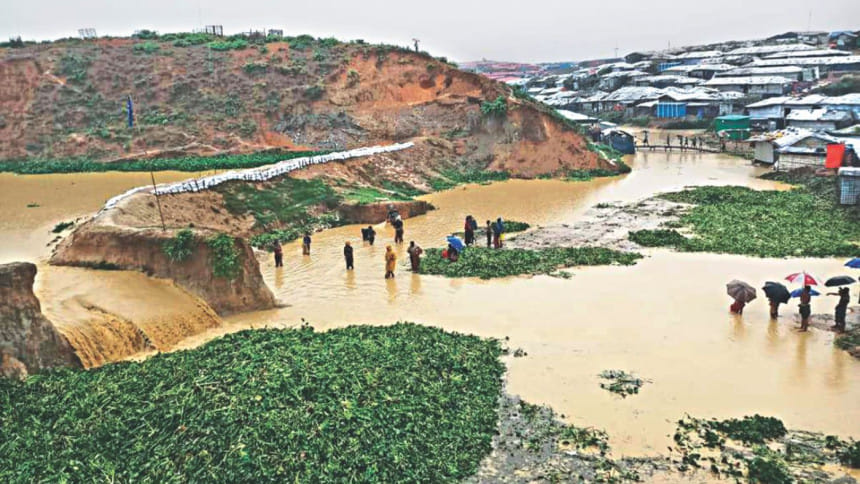
More than 700,000 Rohingyas, who crossed over into the coastal district to escape persecution in Myanmar's Rakhine State since August, are now living in shacks made of bamboo and plastic sheets, which are too weak to stand heavy rain and strong wind.
Yesterday, at least five Rohingyas, including three women, were injured in a landslide in Shafiullah Kata camp in Ukhia. Later, they were taken to hospital.
According to the Met office, 258 millimetres of rain was recorded in Teknaf in the last 24 hours. It forecast heavy showers for the next two to three days.
Local authorities and international aid agencies have long been warning of a looming disaster in the densely populated camps during the monsoon that is likely to last till September.
Nurul Kabir, a Rohingya leader in Shafiullah Kata camp, said, “We are now in a miserable condition. The whole area is flooded with rainwater. We cannot even go out of our shelters.”
Mohammed Abdus Salam, head of Brac Humanitarian Crisis Management Programme in Cox's Bazar, told this correspondent, “Around 300 refugee shelters were damaged yesterday in 16 locations in Ukhia and Teknaf. Many places went under water following heavy showers.
"The refugees need dry food, and we are trying to help them in every way we can," he said, adding that relocation of the affected people to safer places is underway.
Salam pointed out that children are the worst sufferers, and that many of them are suffering from cold-related diseases.
“Things may get worse in the coming days,” he feared.
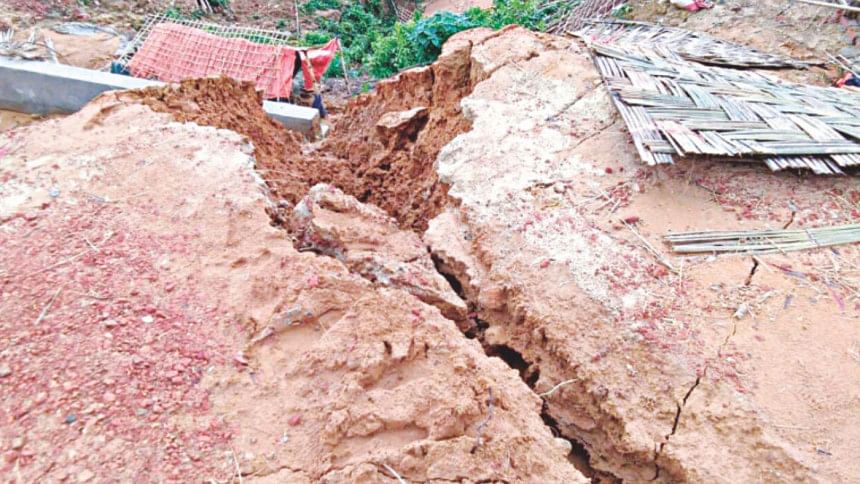
In a statement on Tuesday, Sanjeev Kafley, head of Cox's Bazar Sub-Office for the International Federation of Red Cross and Red Crescent Societies (IFRC), said, “Sodden and unstable hills have collapsed over the weekend, destroying latrines. At lower levels, water from flash floods is washing over latrines, carrying sludge through the camps,”
There has been an increase in diarrhoea cases, and the risk of an outbreak of waterborne diseases is now a serious likelihood, the IFRC official mentioned.
In many places, retention walls and sandbags failed to stop torrents of mud and clay from sliding down deforested hills. With forecast of torrential rain in the coming days, more landslides are likely, which could lead to serious injury or loss of life, Kafley added.
Talking to this newspaper, Cox's Bazar Deputy Commissioner Kamal Hossain said it was getting difficult to reach the refugees as many of the unpaved roads in the camps got inundated due to heavy rain.
“Emergency Coordination Cell has been working round-the-clock ... we are trying our best. We have already urged the aid agencies to arrange dry food for the refugees,” he added.

 For all latest news, follow The Daily Star's Google News channel.
For all latest news, follow The Daily Star's Google News channel. 

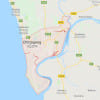
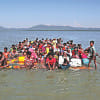


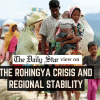


Comments